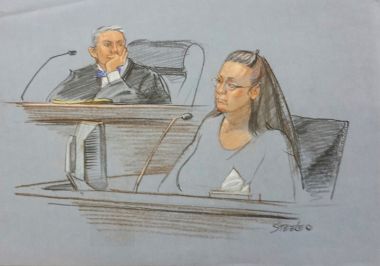Kentucky judge who jailed county clerk once ordered students to watch gay video

The Kentucky judge who cited Rowan County Clerk Kim Davis for contempt and ordered her detention previously issued a ruling that ordered students to be re-educated about homosexuality despite their objections.
In 2003, the American Civil Liberties Union (ACLU)—which filed the case against Davis—sued the Boyd County Board of Education to compel it to allow a gay-straight alliance club at Boyd County High School in Kentucky.
The creation of the club met resistance from the students' parents. In December 2002, the board suspended all clubs in all schools in the district while local ministers organised school walkouts and a public rally against the club.
In a ruling, US District Judge David Bunning ordered the county education officials to allow the club to meet on campus, saying that all clubs should be treated equally.
"Absent a preliminary injunction, plaintiffs will be unable to meet at school, unable to benefit from a forum for discussion with other students who are suffering the effects of harassment based on sexual orientation, and unable to work with other students to foster tolerance among all students," Bunning ruled.
Bunning also required the school district to conduct an annual training on all types of harassment including ant-gay harassment.
A number of students refused to watch a video that conveyed the view that it's wrong to go against homosexuality and that a person's gender identity cannot be changed.
The students sought the help of the Alliance Defending Freedom (ADF), which sued the education board on behalf of student Timothy Morrison and his parents, who said the training "effectively forces the students to speak in agreement with the school district's view that homosexuality is a safe and healthy lifestyle that cannot be changed."
In 2006, Bunning again ruled that the students must watch the video, saying that the education is "rationally related to a legitimate educational goal, namely to maintain a safe environment."
"Plaintiffs are not requesting that a student absent from the training be considered an 'excused' or that the Board offer an alternate assignment on the issue of diversity. Rather, they seek to opt-out of the training altogether," Bunning ruled.
"Given the requirements of the consent decree, the Board cannot meet this demand. Moreover, as there is no burden on plaintiffs' freedom of speech, free exercise or other constitutional right, there is simply no basis for an opt-out," he said.
His decision was appealed to the US Sixth Circuit Court of Appeals, which overturned his ruling in October 2007 and sided with Morrison.
"Although a favourable decision cannot provide Morrison an opportunity to travel back in time and utter the speech he withheld, it can provide him with nominal damages," the three-judge panel ruled in the 2-1 decision. "Even though these damages amount to little, they serve to vindicate his rights."











